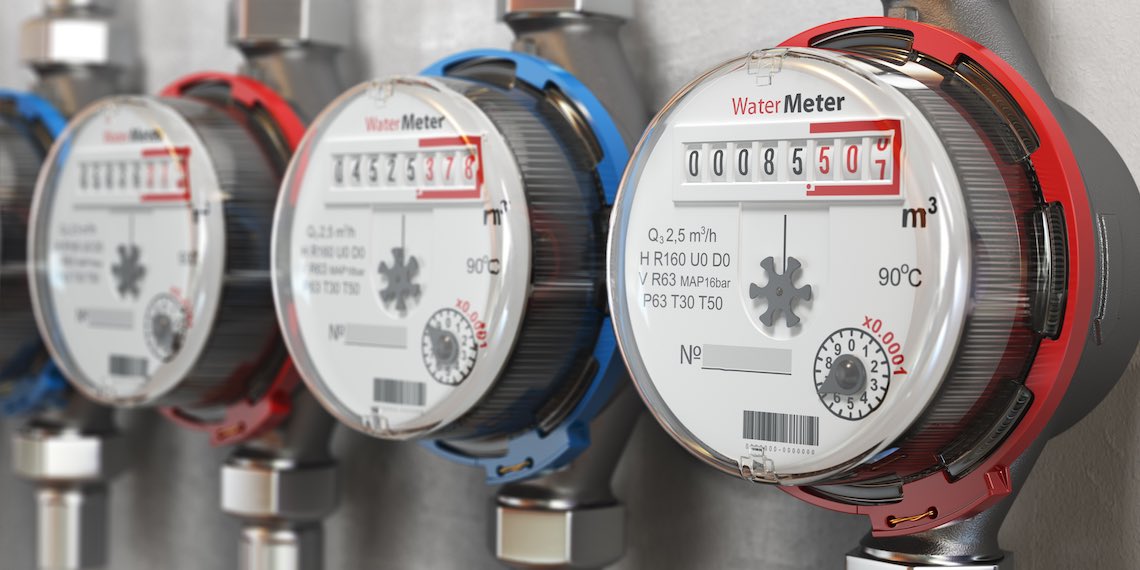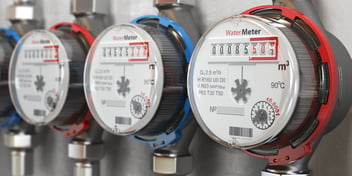Water management data helps navigate digital transformation

Realising the benefits of smart water technologies in homes and communities requires more thinking in terms of data governance practices and local water management, according to one University of Technology Sydney (UTS) researcher looking into the potential benefits and challenges of tapping into consumer water-use data.
UTS Institute of Sustainable Futures’ Simon Fane, who will presenting at Ozwater’22 on navigating digital transformations of water use in the home, said his recent research, conducted in partnership with Sydney Water, is all about considering what could be possible and where problems might emerge.
“There's a lot of discussion about the implications of digital technologies and smart utilities. But this research is focusing on what could be expected to happen with digital technologies on the other side of the customer's meter and how water is used inside the home,” he said.
“What happens inside people's houses and buildings is important to water utilities. It’s how customers and people in general use their product, and it has significant implications for conservation or water demand management in the future.”
Water demand management
Fane said the study considered a range of different water-use technologies, all of which are currently available for consumer use, and how data from these devices might be used by water utilities in future.
“We have got some very smart devices. There are now technologies that connect taps, showers and toilets to the internet, effectively. They're able to measure all aspects of how water is being used,” he said.
“While they’re not being purchased by many people, they are going into commercial environments and they will end up in residential developments in the near future.
“This technology helps people understand their own water use, but it could also potentially go back to the utility to help them understand how different customer groups use water. This information is very valuable in terms of devising messaging around water conservation.”
Fane said another huge benefit of these technologies is the potential they have to assist with detecting and stopping leaks.
“Leaks can have massive implications. Even low-level leaks can involve high costs, in terms of damage to buildings over time, particularly within multi-story developments. But with access to water data leaks can be identified and managed before they become a much bigger problem,” he said.
Fane said the advent and continued use of these smart water technologies in the home all promise to help build a digitised understanding of consumer use, but that it is important to properly consider the extent of potential benefits available.
“There is potentially going to be a huge amount of data on how water is actually being used in buildings and houses. A magnitude of information is potentially going to be available in a relatively short time,” Fane said.
“This will allow for a much deeper digital understanding of water use. We're heading towards a future where we're going to have incredible data that could be used for health outcomes and water management.”
Privacy problems
While these technologies will produce a lot of information that could be incredibly valuable across a number of different fronts, Fane said they raise a lot of questions around data privacy.
“This issue can occur with any smart technology in the home. If people have access to whether you've got your lights on or whether you're using your showers, they can know whether you're at home or not,” he said.
“Who might end up with access to this data? From the water utility’s perspective, how can they have access to useful data while maintaining privacy? Can we do it without allowing malicious actors to get hold of some of this data?
“It’s important for us to start raising these questions so that we can start managing them early.”
Furthermore, Fane said issues of socioeconomic impacts also needed to be thought through.
“These technologies also have the potential to exacerbate inequities, where the wealthy have access to them and gain all the benefits. Or less privileged people may be using these technologies, but don't own their own data,” he said.
“The technology behind these devices is very powerful. But the questions then become: who has access to them? Who's going to gain the benefits? Who will have access to the data? How would the privacy issues and trust issues be managed, to get the most out of this?”
Smart water meter data use
Fane said the study is asking these questions to gain a better sense of what issues would need to be addressed in the near term, as well as other issues that might arise in the future.
“In terms of how we're using this information inside Sydney Water, we want to work with their planners on how this information could be applied,” he said.
“We’re asking what these potential issues might mean for the way utilities think about integrated water cycle management, or demand forecasting.
“Ultimately, the key aim of this study is to identify the blind spots in terms of anything that could occur beyond the meter. Digital transformations are coming, and we want to help ensure adoption and use is managed well, for the utility and the customer.”
Interested in learning more about the digital transformation of the home and water use? Register for Ozwater’22 here.



